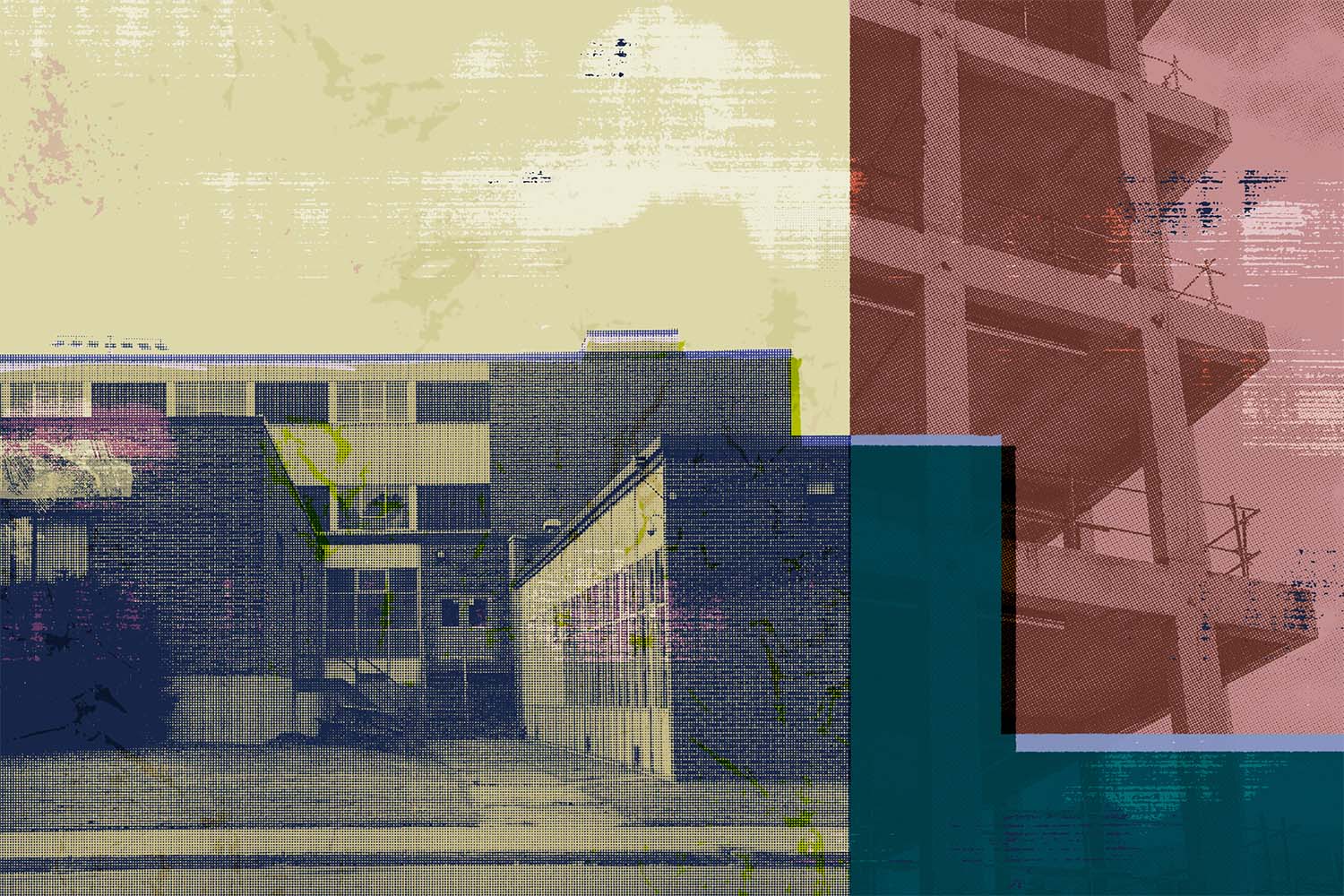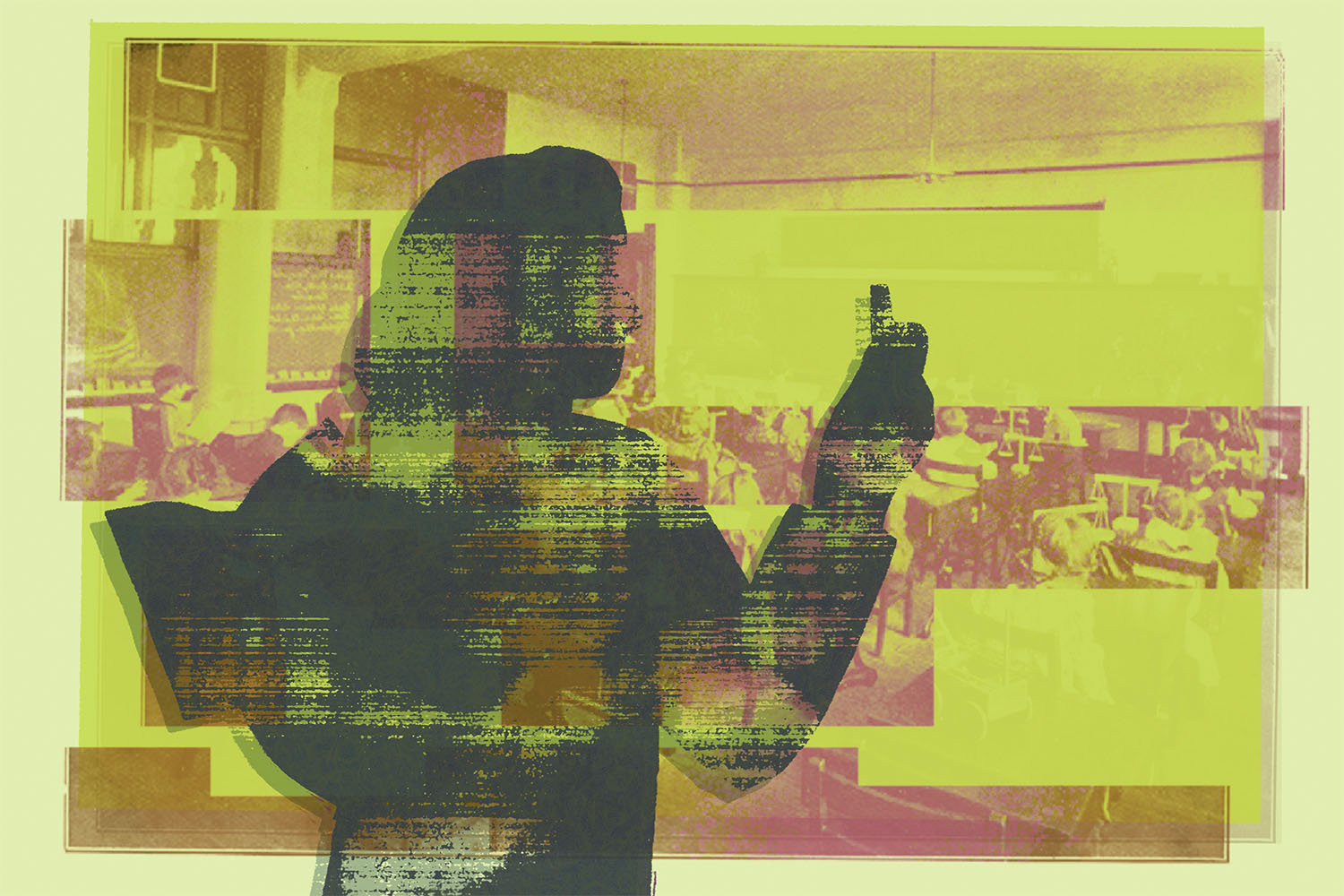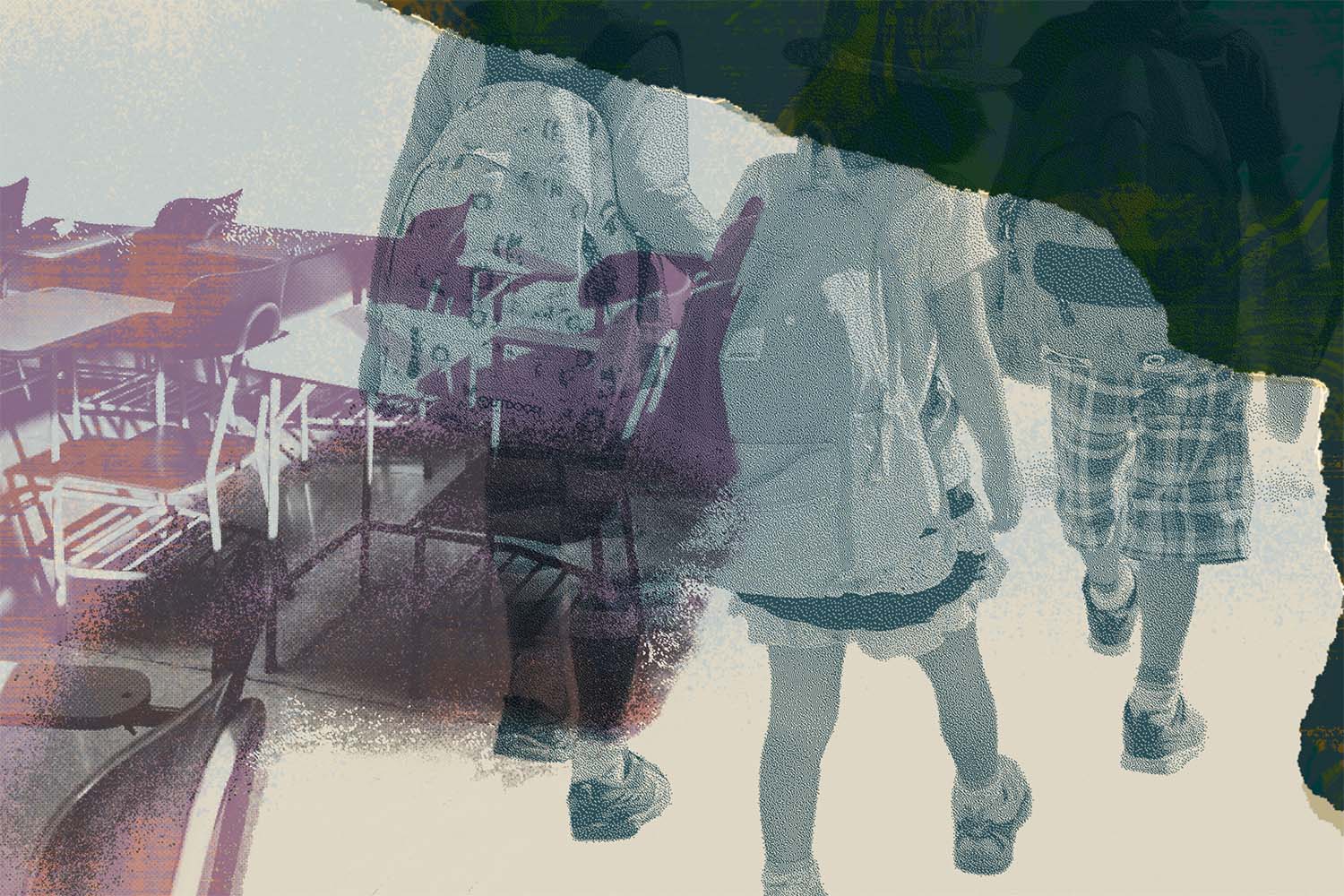
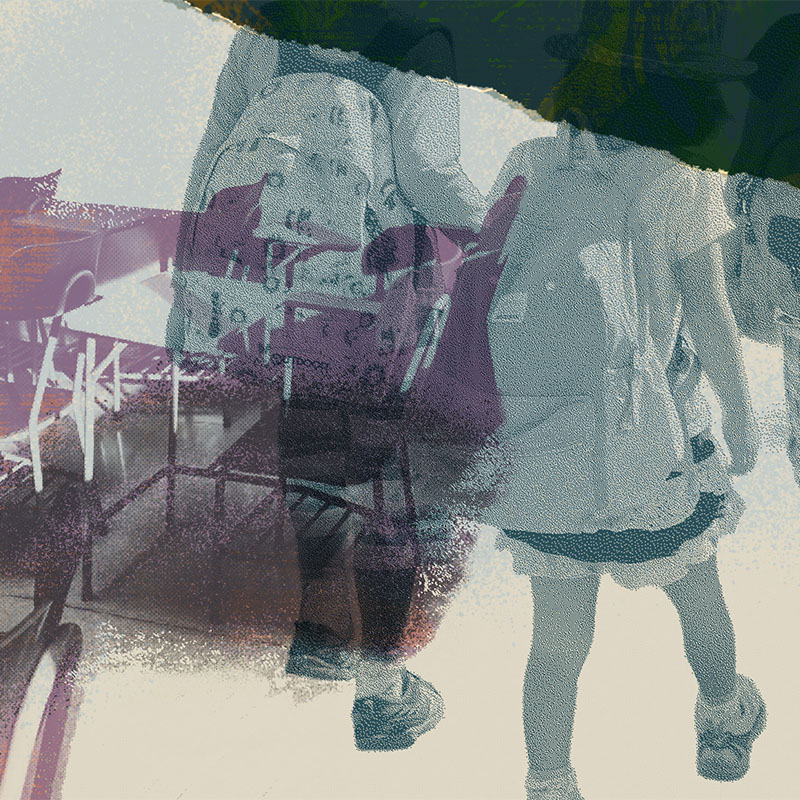
On June 27, Trustee Dan MacLean was sitting on stage, ready to give a speech at a graduation ceremony at Burnhamthorpe Collegiate Adult Learning Centre. Over the past few weeks, he had already attended 25 graduations among the 29 schools in his ward at the Toronto District School Board (TDSB). This was his last, held on the final day of school before summer break. But that day, MacLean was distracted, trying to discretely check his phone.
He knew the minister of education was scheduled to give a press conference at 11 o’clock that morning. And sure enough, just before MacLean was set to give his speech, he received the news of the minister’s bombshell announcement: effective immediately, the province was taking over the TDSB, the largest school board in the country, and three other boards, appointing a supervisor to each.
MacLean was stunned. He wasn’t sure what to do.
“Technically, I’d been relieved of [my] duties,” he said.
Feeling it would have been rude to get up and leave, he proceeded to give his speech, and stayed to shake hands and give out awards. But by about 4 p.m., he and his 21 fellow trustees at the TDSB received formal notice from the board’s director of education. Their pay, an honorarium of roughly $24,000, was suspended. They were instructed not to communicate with their constituents or engage in activities in their official capacity. Any emails or phone calls from their constituents were to be directed to an email address for the director’s office or to the TDSB’s main phone line. They no longer had access to TDSB office space. They later learned they were also losing access to their TDSB emails and phones.
Award-Winning Education Coverage
Subscribe to our free newsletter to get the latest from our special series—School Board Takeover.
"*" indicates required fields
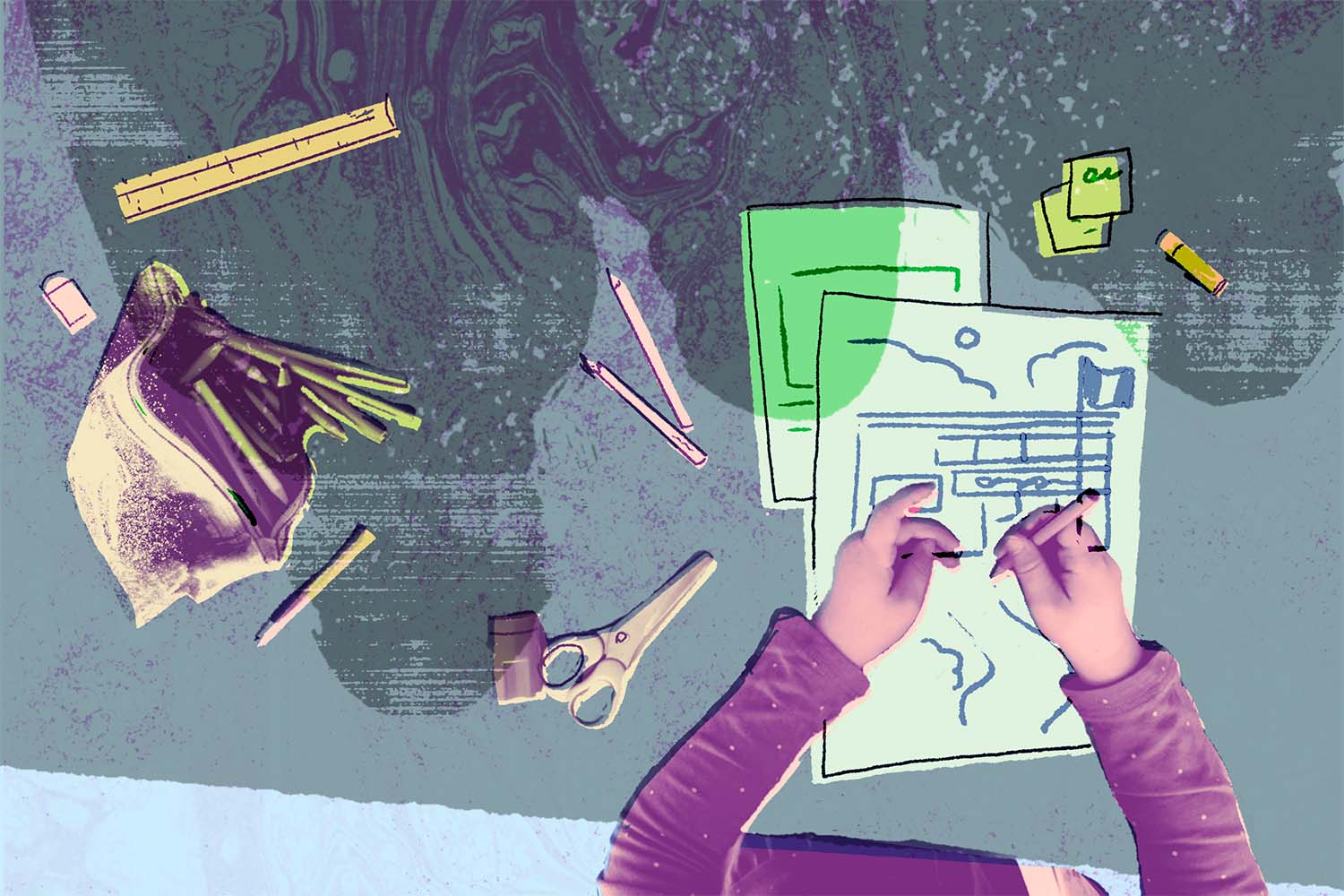
“We can’t enter the building. We can’t speak to constituents. You know, it’s a totally unprecedented time,” said MacLean, the elected trustee for Ward 2—Etobicoke Centre.
Although he and other trustees told The Local they were surprised by the ministry’s sudden and decisive move, they couldn’t have been entirely blindsided. The threat of supervision had been looming for months, ever since the new Minister of Education Paul Calandra held his first press conference in April. Calandra had promised then to crack down on what he characterized as misspending among Ontario’s school boards. He announced the province was appointing a supervisor to oversee the Thames Valley District School Board and was reining in the Brant Haldimand Norfolk Catholic District School Board—two boards that were widely criticized for costly trips their officials took last year to Toronto and Italy respectively. Calandra also said that the province was launching financial investigations of the TDSB, the Toronto Catholic District School Board (TCDSB), and the Ottawa-Carleton District School Board.
In June, ministry staff conducted a financial investigation of the Dufferin-Peel Catholic District School Board, as well.
Now, based on those financial investigations, the province was taking over these four boards. Supervisors, some of whom have ties to the federal or provincial Conservatives, would be appointed for an unspecified period—”whatever time is needed,” Calandra said—to restore financial stability.
Public response to the takeover has been divided, with critics decrying the move as provincial overreach and an affront to local democracy, while others applaud the ministry for taking action to fix what they see as ineffective, mismanaged school boards. But to many who have been studying, observing, and participating in public education in Ontario, it’s clear that the province’s crackdown isn’t just about ensuring financial accountability of the school boards—it’s a play for power. Calandra suggested as much in his June 27 press conference. “It’s not just about boards that are in deficit, frankly, right?” he told reporters. “All school boards across the province should be put on notice.”
Sachin Maharaj, an assistant professor in the faculty of education at the University of Ottawa, believes the province’s goal is to take control of school boards so it can more directly assert its vision of education.
For years now, that vision has been framed as going “back to basics,” with a focus on subjects like reading, writing, and math. Many conservatives have felt school boards, particularly in progressive urban centres like Toronto, have become distracted by things like equity and social justice initiatives. Meanwhile, trustees and community members who support such initiatives argue they’re necessary to foster student learning and create more inclusive environments.
“By the province just kind of sidelining the elected school board and putting in their own supervisor, it’s a way to just take more direct control of what actually happens in schools,” Maharaj explained.
Bill 33, the Supporting Children and Students Act, which the provincial government introduced in May and is currently in second reading, would further that agenda. Existing legislation only allows the ministry to take over school boards for financial matters. But Bill 33 would allow the minister to direct investigations and intervene in board affairs if, as the proposed legislation puts it, “the Minister has concerns about a matter of public interest.” The lack of detail about what constitutes a matter of public interest has some critics worried it would allow the minister to intervene over just about anything. The bill also brings police officers back into schools, and requires boards to seek the minister’s approval to name or rename schools.
“We can’t enter the building. We can’t speak to constituents. You know, it’s a totally unprecedented time.”
“That’s why I think framing [the school board takeovers] as about finances is largely a pretext,” Maharaj said.
Ultimately, he suspects the province is looking to eliminate elected school boards altogether by diminishing the role of trustees to the point where they become irrelevant.
Yet those who are increasingly unhappy with their local school boards welcome the prospect of the ministry wielding more power over public education. TDSB Trustee Weidong Pei voiced his approval of the takeover in the Toronto Star, telling the newspaper it had become clear to him that the TDSB is dysfunctional. “It’s crisis after crisis,” he said.
Katrina Matheson, a parent organizer at the grassroots Toronto Schools Caregiver Coalition, said although she’s been impressed by some of the dedicated TDSB trustees she’s gotten to know over the years, her experiences with the board have left her feeling cynical about their role.
TDSB staff seem to make decisions, like transferring a popular principal or recommending increasing special education class sizes, without regard for the overwhelming opposition from students and parents, she said. Meanwhile, trustees often tell parents they can’t weigh in on operational issues, and adhere to what Matheson sees as an artificial divide between operational decisions versus policy decisions.
The TDSB has a pattern of “strange, non-transparent decision-making happening at senior staff level of the board that, apparently, the trustees are totally shut out of,” she said.
As a result of their frustrations with the board, many parents in her coalition, including those who are left-leaning, have mixed feelings about the takeover, Matheson said.
Matheson said she hoped that the ministry would take parents’ input seriously. She was optimistic that everyone involved in the takeover is operating in good faith. At the same time, she expressed some reservations. She noted the ministry-appointed supervisor to the TDSB, Rohit Gupta, lacks experience in public education. Gupta is a former Metrolinx advisor who was an economic policy advisor to Stephen Harper.
With the trustees now shut out, she said, Gupta will likely have to depend on the very people she believes are responsible for a lot of the dysfunction at the board, the senior staff.
The TDSB told The Local that all questions related to the supervisor’s activities were to be directed to the education ministry’s media relations office. We sent multiple emails to that office, but did not receive a reply.
Double Your Impact
This story was paid for by readers like you. Donate today and your contribution will be matched up to $10,000. Select “School Board Takeover Series” from the drop-down menu on our donation form to support the next story in this series.
SupportThe province’s takeover doesn’t just block out elected trustees, it also hampers public scrutiny over what’s happening at the boards. At The Local, our search for answers to even basic questions, like what changes students and educators could expect to see during the supervisory period, how the supervisors plan to address the boards’ deficits, and how decisions would be communicated to the public, went unanswered. The trustees who spoke to us could only offer their speculation, while other trustees and staff at the affected GTA boards referred us to the ministry, which did not respond.
It’s a stark contrast to the norm. Board decisions are typically made through debates in meetings that are open to the public, and with community input through public consultations and delegations. The boards also usually respond to media queries directly, and trustees can freely talk to reporters, instead of directing them to the education ministry.
Hugh Mackenzie has seen the ministry of education try to wrest control of the Toronto and Ottawa school boards for around 50 years, dating back to the 1970s when school boards in Ontario were able to raise their own money through local taxes. He sees the province’s latest takeover as an extension of that decades-long struggle.
In the 1970s, the tax base of both cities had grown so much that their school boards did not need to rely on provincial funding, according to Mackenzie, a long-time researcher on public education in Ontario. That meant the education ministry had little say over what the boards did.
By the late 1990s, the provincial Conservative government led by Mike Harris changed the funding formula so that school boards were entirely dependent on provincial grant funding. By doing so, the province was able to have more control of the boards, and it financially squeezed the particularly large ones, like Toronto’s and Ottawa’s, which led to the underfunding woes that persist and are experienced by boards across the province today.
According to NDP MPP Chandra Pasma, the official opposition’s education critic, 43 percent—or two in five—school boards in Ontario are currently running a deficit because of provincial underfunding.
While the Harris government’s revamp of the funding model meant the boards lost the ability to raise their own money, they didn’t lose the ability to complain about it, Mackenzie said. “So that became the new front in the war between the ministry and those school boards.”
“By the province just kind of sidelining the elected school board and putting in their own supervisor, it’s a way to just take more direct control of what actually happens in schools.”
In 2002, the province placed the TDSB under supervision when the board declined to submit a balanced budget as required by provincial regulations. Trustees refused to make the necessary cuts to compensate for an estimated $89-million shortfall. In the end, Supervisor Paul Christie reduced administration jobs, but protected certain areas of spending, including classroom instruction, and even increased spending for things like computers and textbooks. He did not manage to balance the budget, however; the shortfall was $54 million.
Despite the past experiences of various boards under supervision, it’s unclear what to expect this time.
The Local’s requests to interview the supervisors of the three GTA boards—the TDSB, TCDSB, and the Dufferin-Peel Catholic District School Board—were referred to the education ministry’s media relations office, which did not respond.
At the TCDSB, where the provincially appointed investigator said the accumulated deficit was projected to be $75.2 million by the end of 2024-25, Trustee Kevin Morrison was skeptical that their supervisor will be able to put them in the black.
“There’s no way to say, ‘Hey, you know, let’s make some reductions,’ … and to get us back on track,” he said, noting the province has not adequately been funding key areas, like staff sick leaves, statutory benefits, and transportation. “You can’t turn $1 into $1.10.”
Morrison questioned the timing of the takeover, viewing it as a calculated move to neutralize the ability of trustees, as elected representatives of their communities, to mount any resistance to Bill 33.
That bill, he said, “effectively changes school board governance in a way that we haven’t seen in a very long time.”
Everything in the proposed legislation indicates the province is seeking to strip any power and representation that trustees have within their communities, he said, adding he worries about what this means for the future of the Catholic school boards.
Unlike at the TDSB, trustees at the TCDSB still retain 25 percent of their honourarium of about $18,000 per year during the period of supervision, and at the discretion of the supervisor, they may be consulted on denominational rights—rights enshrined in the Constitution Act that protect Catholic education. But the fact that it’s up to the discretion of the supervisor when to consult trustees is cause for alarm, Morrison said.
“We would be of the opinion as Catholic trustees that everything to do with Catholic education, and everything to do with our board, is denominational,” he said.
Under normal circumstances, trustees work with various groups, including the Archdiocese, to develop the Catholic curriculum, and may seek the opinion of a lawyer on certain issues. They can no longer do that, now that they don’t have funds and the ability to convene or vote. “So essentially, it’s an attack on our denominational rights as well,” he said.
Takeover of GTA School Boards—Your Questions Answered
Still have questions? Check out our School Board Takeover FAQs here.

For Victor Jiang, who is expected to begin his term as TDSB student trustee in August, the biggest question is what the provincial takeover will mean for students and their ability to have a say in their education.
“I think that student voice is something that’s really, really essential,” said Jiang, who is going into grade 12 at Marc Garneau Collegiate Institute in North York in the fall. “We are the largest majority stakeholder group in education, but we have no direct influence on our systems that govern us.”
Student trustees are meant to help address that problem and serve as a link between the student body and the board, he said. But he’s heard growing concerns among other student trustees that they could be sidelined during the period of supervision. He does not yet know whether he’ll be able to attend conferences to meet with peers or participate in committee meetings at the board, and whether the supervisor will have ways for students to provide their input.
Without any clarity from the province about what to expect, students and families will simply have to wait and see what happens in the upcoming school year.
Back in Ward 2—Etobicoke Centre, Dan MacLean explained that the formal part of his job as trustee was to make decisions about the TDSB’s policies and its budget. That work occurred in the committee and board meetings that are normally held publicly throughout the school year, and through his dealings and discussions with fellow trustees and board staff.
The informal part of his role—in MacLean’s estimation, “the more important job”—was to support the communities of the 29 schools in his ward. Until his suspension, he held community forums, reached out to school councils, issued newsletters to keep people updated, and fielded a continuous stream of emails and phone calls from parents and guardians to answer their questions, listen to their concerns and frustrations, and help them navigate the school system.
Since June 27, he has set up an automatic reply notice on his email, referencing Minister Calandra’s decision and referring people to the email address and phone number the director provided.
When issues arise, families will still be able to first go to the teacher, then to the principal and superintendent. But if they wish to speak to someone outside of the bureaucracy, someone in their community who is accountable to them, they’ll be out of luck.
Come late August and early September, as families and educators get ready for school, “it’s going to be a real problem,” MacLean said. There are 582 schools in the TDSB. “Expecting the director to be able, or the supervisor to be able to navigate all the concerns of 582 schools is, you know, I think, overly ambitious.”
___
The Local is committed to covering the provincial takeover of GTA-area school boards. If you have a tip for us, you can submit it through our anonymous tip line, or you can reach out directly to Wency Leung at wency@thelocal.to.


